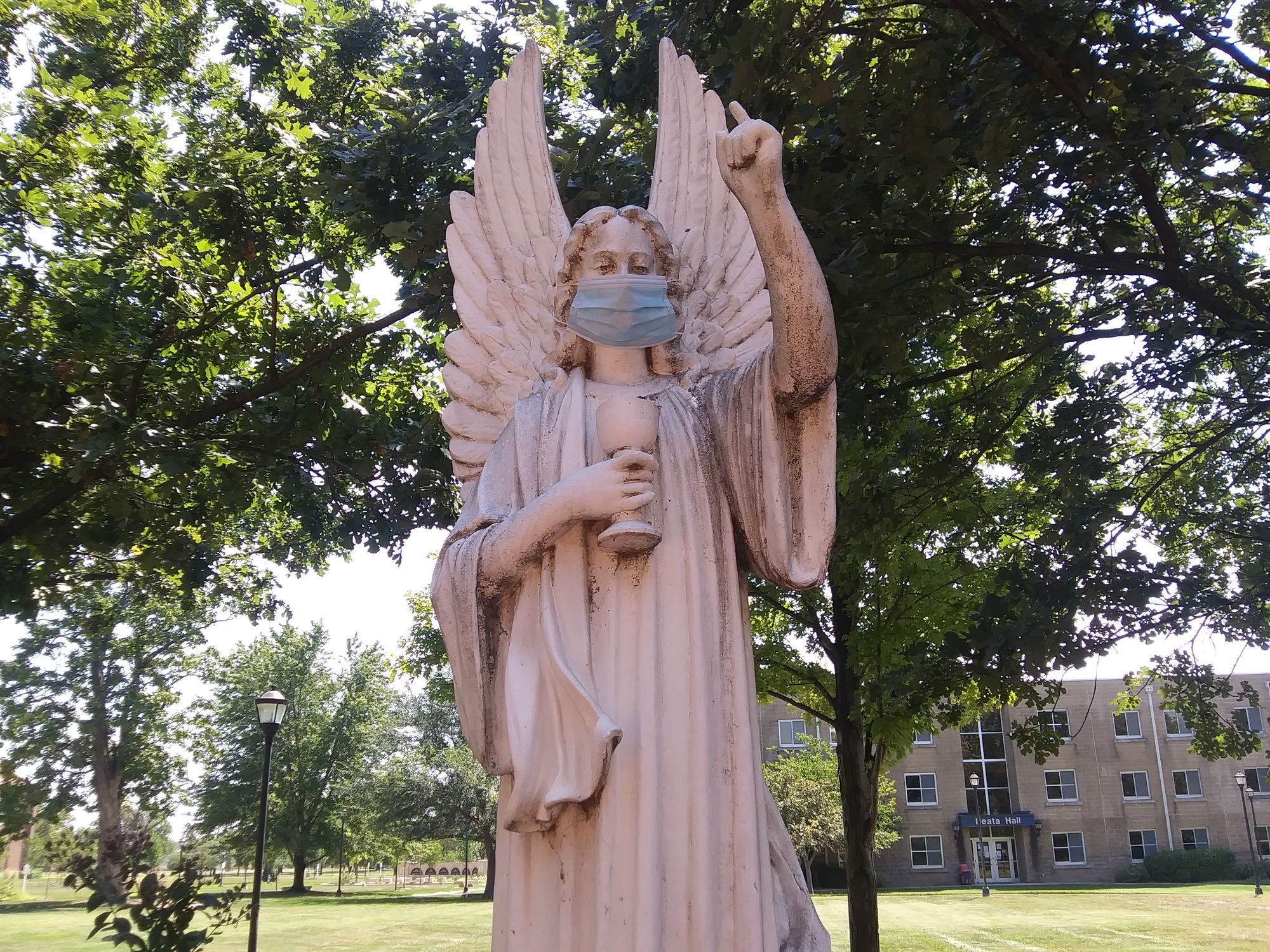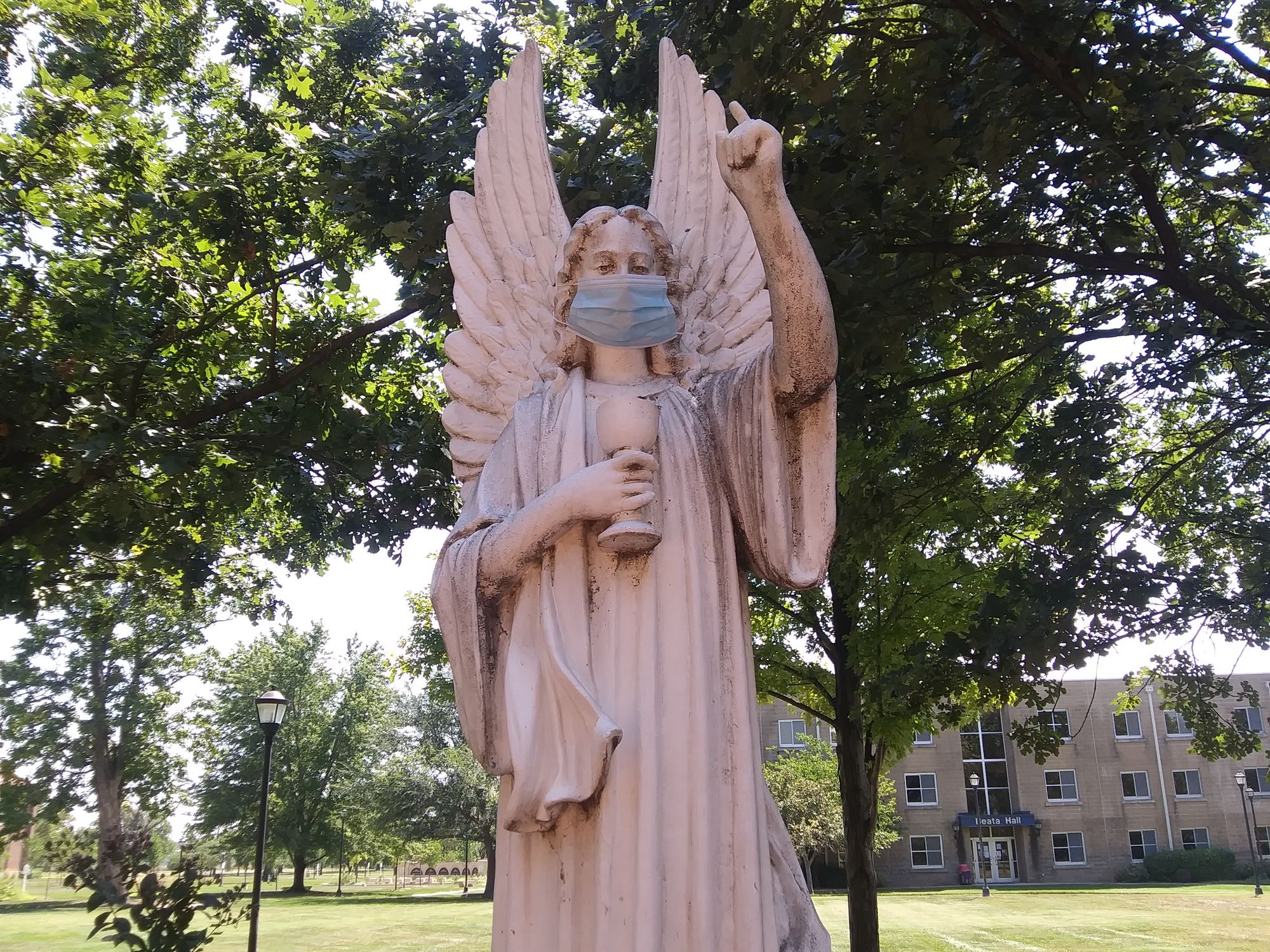
By Madeline Alvarez, Editor-In-Chief
A new “social contract” that all Newman students were required to sign before starting the new semester amid the COVID-19 pandemic is not intended to turn campus into a “police state,” says President Kathleen Jagger, but rather was meant to send the message that everyone has to work together to keep Newman open.
But one student was uncomfortable enough with the language in the contract that, although she eventually signed it, she started a petition earlier this month asking that the language be changed.
The petition still exists online at ipetitions.com and has been signed by 26 people.
Senior Clare Morgan said she decided to start the petition after having conversations with several students and faculty members who all had the same questions about the contract. She started the petition in response to the third clause, which reads: "I agree to notify others if I feel unsafe or if I see potentially unsafe situations or behaviors on campus."
The petition states: "It is our belief that this third clause, far from helping students feel ‘safe,’ will only serve to distract students and professors from their common goals, and turn peers against one another in a mandated position to be ‘always on the lookout.’ Such a change in culture on our campus is not one that can be taken lightly.…We ask for an amendment that will promote a positive and hopeful outlook…"
The spirit of her petition was not anti-mask, Morgan said, and the people who signed it appeared to understand that.
But Jagger says that it’s all a misunderstanding and that the intent behind the social contract was not to compel students to tattle on their friends.
"We're not asking for a police state," Jagger said. "We're asking for people to be aware of unsafe circumstances and help people who are in those unsafe circumstances consider their behavior."
Jagger said that students who do not report others for engaging in unsafe behavior will not be punished.
But if a student sees a group of people not wearing masks, she said, they should feel empowered to speak up.
She says students can either say something to people exhibiting the unsafe behavior themselves or they can share the experience with a faculty member.
“Whether we remain open depends on people's behavior,” she said. “We have heard from students and from staff and faculty they'd rather be open than remote. So we are trying to maximize the likelihood of staying open.”
Jagger said there is a three-strike policy in effect that is meant for those who refuse to wear masks. If a student is reported for refusing to wear a mask, Dean of Students Christine Schneikart-Luebbe will talk to the person, educate that person, and urge him or her to wear one. If the student is reported a second time, the student will be told that if they refuse to wear a mask for a third time, they will be asked to leave campus. Jagger said there may be options for the student to continue to study remotely, but that will depend on how their professors are choosing to offer the courses they are taking.
"If you really refuse to wear a mask, the message that you're sending is 'I don't care about the safety of other people on my campus,'" she said.
She said students will not be punished for forgetting to wear a mask, but will be asked to utilize the many masks that are available at various stations set up across campus.
Though students are asked to bring their own masks, the university has enough to cover those who forget, she said.
Photo by Madeline Alvarez, Editor-In-Chief
